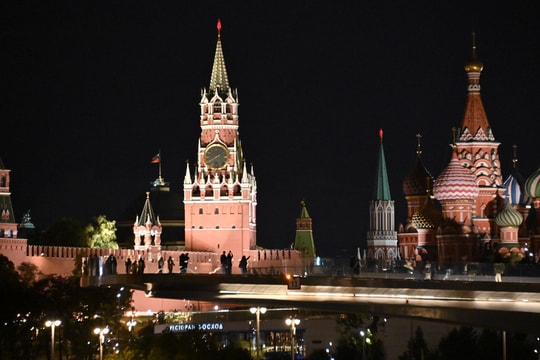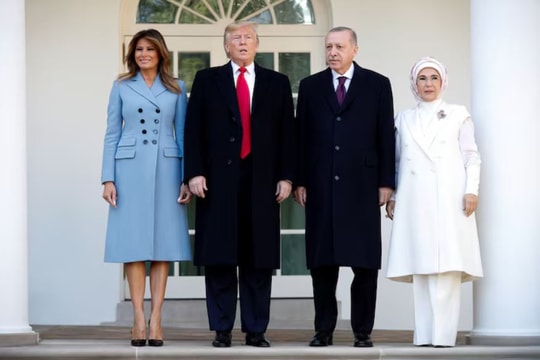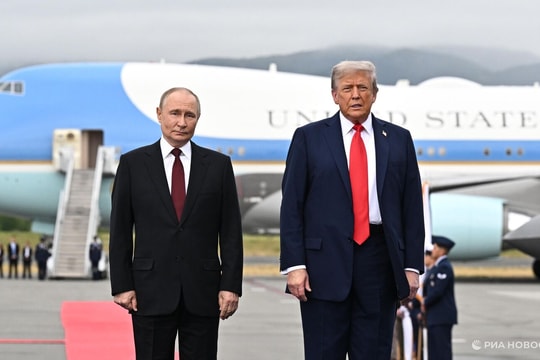IS fighters do not want to return home
(Baonghean) - The death of student Otto Warmbier and Pyongyang's nuclear and missile escalation have made Washington even more concerned, forcing it to issue a ban on its citizens from setting foot in North Korea to prevent the possibility of "going easily, returning difficult".
Meanwhile, foreign fighters of the IS force are clinging to Syria and Iraq, not wanting to return home even though their dream of establishing their own state is gradually fading.
 |
| The Trump administration has just banned its citizens from traveling to North Korea following the death of student Otto Warmbier. Photo: Telegraph |
US bans citizens from traveling to North Korea
North Korea - the mysterious Northeast Asian country is a place that many Americans who love to explore want to visit at least once. However, after the sudden and mysterious death of American student Otto Warmbier, the US has just issued a ban on its citizens traveling to North Korea.
The ban takes effect next month. Specifically, on July 21, Secretary of State Rex Tillerson decided to impose a “geographical travel restriction” on North Korea, amid growing US concerns about Pyongyang’s moves to advance its nuclear weapons and ballistic missile programs.
“Due to growing concerns about the serious risk of arrest and long-term detention under the North Korean regime, the Secretary of State has issued a geographic travel restriction prohibiting all passport-based travel by U.S. citizens to or through North Korea,” State Department spokeswoman Heather Nauert said.
It is difficult to give an exact figure on the number of American tourists to North Korea, but according to Simon Cockerell of the Koryo Group - one of the leading units organizing guided tours to North Korea - each year there are about 800-1,000 Americans who come here and will be affected by the new ban that officially takes effect at the end of August.
By then, Americans who want to legally travel to North Korea will have to apply for a special passport issued on a case-by-case basis by the State Department for “limited humanitarian or other purposes.” And to add to the deterrent effect, any citizen who violates the rules, even for the first time, could face a fine and up to 10 years in prison.
To date, most US citizens who have traveled to North Korea have returned safely. However, there have been a few cases of arrests and convictions for crimes that Washington considers not too serious. It is estimated that at least 16 US citizens have been detained by Pyongyang over the past decade.
Notably, the ban comes as the Trump administration looks for more effective ways to increase pressure on North Korea to abandon its nuclear weapons programs. Pyongyang’s recent successful intercontinental ballistic missile test has added urgency, prompting the US to seek ways to stop North Korea before it masters the complex process of launching a nuclear warhead capable of reaching US territory.
Under US law, the Secretary of State has the authority to request restrictions on passport travel to countries where the US is at war, when hostile forces are deploying weapons, or when there is a risk to the health and security of the American people. Although there are many precedents for this, the latest ban has been met with skepticism and criticism from many people, especially travel companies directly affected.
The argument they put forward is that the ban will cause US engagement with North Korea to retreat. A superpower that has often criticized Pyongyang for its isolationism is now contributing to that isolation, raising questions about the role of Washington’s so-called “soft power.”
 |
| The IS supreme commander is believed to be still alive. |
Foreign IS fighters do not want to return home
Meanwhile, in another hot spot of the world, when the illusion of a self-proclaimed “Islamic State” is gradually fading away after consecutive failures, instead of returning to their homeland, foreign IS fighters will likely continue to stay in the “fire pit” of Iraq and Syria, entrenching themselves in the remaining remnants of their self-proclaimed state.
Nicholas Rasmussen, Director of the US National Counterterrorism Center, also affirmed this in a recent speech at the annual Aspen security forum: “Many, if not most, of the foreign fighters who have made their way to conflict zones will eventually stay, fight, and possibly die to maintain the self-proclaimed Islamic state.”
Contrary to the recent assessment that many IS fighters would eventually return home, posing major security threats to their homeland, this view seems more plausible in the current context, especially when the head of the US National Counterterrorism Center himself affirmed that he could not confirm the information that IS supreme commander Abu Bakr al Baghdadi had been killed.
Even US Defense Secretary Jim Mattis said on July 21 that Abu Bakr al Baghdadi is still alive, meaning that "the snake has not lost its head" and IS forces will still hold out until the end.
And even if they want to return home, it is not easy for extremists, because the way back is full of obstacles, when the campaign is still taking place in the "fire pan" of the Middle East, when Turkey and many other countries have strongly tightened their borders.
“A silver lining,” the latest assessment will be welcome news for countries that are home to tens of thousands of Islamist extremists who have fled their homeland in droves to establish a self-proclaimed Islamic state since 2014, after sweeping through Syria, seizing the northern Iraqi city of Mosul and attacking the outskirts of Baghdad.
In fact, extremists returning home have planned to carry out bloody attacks, taking the lives of many innocent people, forcing governments to think about new airstrikes as IS gradually loses ground in Syria and Iraq.
However, according to US intelligence officials, countries cannot be complacent, because the more worrying thing now is not necessarily the influx of foreign fighters, but the threat from IS branches in Asia and Africa, which means that the global war on terrorism will continue to be tense in the coming years.
Thu Giang
(According to AP, Reuters)
| RELATED NEWS |
|---|








